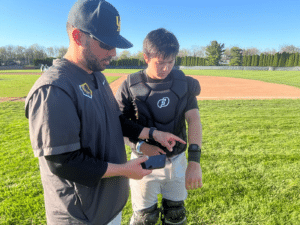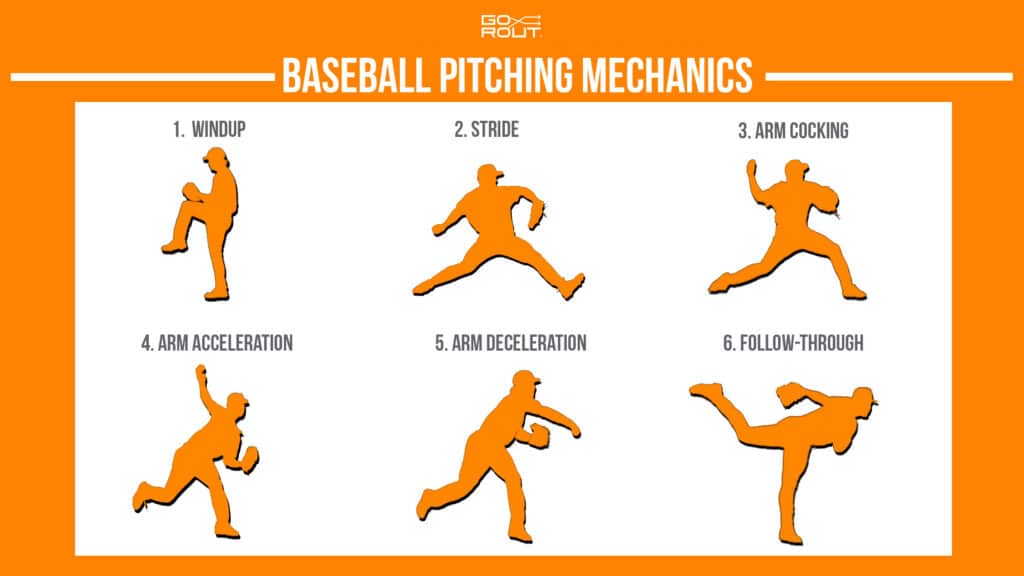The Biggest Youth Baseball Coaching Mistakes and How to Avoid Them
Reading Time: 9 minutes
Reading Time: 9 minutes
Youth baseball coaching can be rewarding, but also fraught with pitfalls that can undermine player development, team culture, and enjoyment of the game.
This article explores the most common youth baseball coaching mistakes—from prioritizing wins over growth to neglecting safety protocols—and offers practical solutions to help you foster confident, skilled, and engaged young athletes.
You’ll learn how to set clear expectations, communicate effectively with players and parents, design age-appropriate practices, and leverage high-quality equipment like GoRout Diamond to boost team performance.
Introduction to Youth Baseball Coaching Mistakes

Youth baseball is a classroom for life skills. Whether you’re coaching T-ball or high school baseball, the fundamentals remain the same: clear expectations, age-appropriate drills, and a growth mindset.
Strong coaching builds fundamental baseball skills but also instills teamwork, sportsmanship, and resilience that last a lifetime. However, even well-intentioned coaches can make mistakes that hold kids back.
Ignoring player development leaves kids unprepared for the challenges ahead. And giving fake praise can create a false sense of approval that undermines motivation and growth.
Identifying and correcting those issues early on can prevent long-term damage to player confidence and retention and make a huge difference in your team achievements.
When coaches do that, teams flourish—and athletes develop a genuine love for the game.
Understanding the Role of Youth Baseball Coaches

How coaches coach and their approach to rules and discipline set the stage for an optimal team environment.
Clear, consistent guidelines set the tone for the entire season. Establish those rules with your assistant coaches, team captains, or parent representatives.
Playing favorites among athletes creates division and resentment on the team. Steering clear of selective coaching helps you make sure everyone on the team feels appreciated and part of the group. It helps build trust and a sense of responsibility among teammates.
Balancing skill development with fun is key. Youth baseball is about enjoyment and personal growth as much as it is about batting averages and pitching accuracy during playing time. It’s the main reason kids play this sport.
Kids expect activity – using varied youth baseball practice drills keeps them engaged and motivated. If too many youngsters stand around with nothing to do during baseball training, their enthusiasm will diminish.
Practices should blend all-inclusive team drills with fun activities—like relay races, creative fielding drills or friendly competitions—that keep kids entertained during game play. A balanced approach helps players maintain morale, which drives more effective learning.
Top Youth Baseball Coaching Mistakes to Avoid

Too often, coaches fail not because they lack passion, but because they overlook small gaps—like structured warm-ups or clear communication—that compound into big problems on the field. If you want to maintain a successful coaching career, the following mistakes deserve mention.
Ignoring player development and focusing only on winning
Solely focusing on winning can damage a young athlete’s confidence. Challenging athletes to their abilities through varied practices is crucial for player improvement. Many coaches focus only on pitching or hitting, yet neglect how players field batted balls—a critical defensive skill that keeps runs off the board.
Failure to challenge each player can cause them to gravitate to other sports, feeling unfulfilled or overlooked. Youth baseball coaches must prioritize skill mastery over premature competition.
Poor communication with players and parents
Many coaches need to be communicators first. Keep interactions concise and engaging.
Failing to keep players and parents informed about practice schedules, role expectations, and performance feedback creates confusion and frustration.
Establish multiple communication channels and set consistent update cadences.
Read our guide to learn more about the best app for coaches to communicate with players.
Failing to enforce clear team rules
Without explicitly stated rules, teams can become chaotic. Clarify expectations around punctuality, respect for youth baseball gear, and behavior on the field and in the dugout on the first day of practice.
Reinforce rules fairly and involve the team’s parents in establishing and implementing those practices. Parents need to know the rules and assist in following them, but they can’t create their own rules and must respect those set by the coach.
Not adapting coaching style to different age groups
Nine-year-olds and fourteen-year-olds have vastly different needs.
Younger players benefit from short, dynamic baseball drills, and simple explanations. Older youth can handle more complex strategy sessions and technical feedback.
Adjust practices’ length, intensity, and content according to age and developmental stage.
Overlooking safety and proper use of baseball gear
Safety and proper use of youth baseball equipment are often overlooked, but that can lead to serious injuries.
Improper warm-ups, helmets that don’t fit right, and cracked bats can all cause real harm. Regular equipment inspections, stressing the importance of mouthguards and athletic cups, and teaching the right way to slide, throw, and catch are all non-negotiables.
Incorporate those dynamic warm-ups and cooldowns into every practice – you’ll see fewer injuries and healthier players.
Neglecting the importance of structured practice plans
Without a clear agenda, you waste practice time as players stand around waiting—turning valuable minutes into missed opportunities to build skills. That’s why you should draft weekly practice plans that outline what you want to achieve, the drills you’ll use, and when you’ll do them.
Share those plans with other coaches and mix up who’s in charge each week to keep things fresh. Structured sessions keep everyone focused, help you acquire new skills more quickly, and reduce confusion during games.
Don’t waste a single moment of practice time—especially during warm-ups—by keeping players engaged and developing those fundamental skills consistently.
Read our guide on youth baseball practice plans to learn more.
The Consequences of Common Coaching Mistakes

When coaches are too hard on their players or only focus on the best ones, athletes can lose confidence and quit the team. You need to fulfill kids’ desires and treat them equally. A supportive environment that celebrates the little wins—first bunt, improved throw accuracy—gives kids the motivation to stick with it in the long term.
Poor communication can lead to misunderstandings between families and athletes. Conflicting messages—last-minute schedule changes, vague instructions on kids baseball homework—frustrate everyone. Prevent those misunderstandings to foster genuine development.
Miscommunication can lead to missed practices, wrong positions in games, and strained relationships between coaches and parents—all of which erode team cohesion.
Safety protocols are non-negotiable. That means proper warm-ups, hydration breaks and equipment checks are a must. Using safer equipment can also lead to fewer injuries, creating a more engaging environment for youth players.
How to Avoid the Common Youth Baseball Coaching Mistakes

A few simple adjustments in your coaching approach can spell the difference between a season of stalled progress and one marked by continuous improvement.
- Emphasize individual and team development: Set measurable skill goals for each player—batting average improvements, fielding percentages—and track progress. Celebrate collective achievements to reinforce teamwork. Using varied drills is crucial to avoid negative attitudes and keep players engaged.
- Communicate regularly and clearly with all stakeholders: Distribute a season calendar at the outset, send weekly updates, and hold a mid-season parent-coach meeting to realign expectations.
- Set and review team rules at the start of the season: Host a kickoff meeting to discuss rules; revisit them after the first month to address any ambiguities.
- Use age-appropriate drills and equipment: For younger players, employ lighter balls and shorter distances; for older youth, introduce situational scrimmages and speed agility drills.
When coaches commit to these strategies, they lay the basis for a positive, growth-oriented season in which every player has the opportunity to thrive.
GoRout Diamond then steps in to ensure every instruction is crystal clear and executed seamlessly so your team can focus entirely on development and performance.
GoRout Diamond: The Best Gear for Youth Baseball Teams
GoRout Diamond is one of the best baseball equipment companies, and it transforms how coaches connect and communicate with every player on the field. It eliminates mixed signals and sign stealing and ensures pitch calls and defensive shifts are delivered instantly with a single tap.
Testimonials and case studies are available for those interested in learning more about its impact.
Coaches can create and customize an unlimited number of baseball signs for youth using the web app. Once pitch calls are configured, they select and send calls to players’ on-field devices via the mobile app.
The coach’s interface supports up to 140 characters per call and offers AI-driven analytics on pitch intent versus result, helping coaches optimize their strategies.
Players wear purpose-built pitch-calling watches that show coaches’ instructions instantly, with a battery life of at least 12 hours on a single charge. These electronic pitch calling wristbands require no setup or pairing—powered by GoRout Air™.

They guarantee seamless, real-time communication even without Wi-Fi, so teams never lose critical instruction during drills or games.
Built to withstand all weather conditions—from rain and snow to high heat and humidity—GoRout Diamond gear prevents equipment failures that derail practice flow and compromise player safety.
Fully encrypted signals and privacy screens protect play calls from being overheard, preventing miscommunication, and unauthorized sign leaks.
With a 100% full-coverage warranty on hardware breakage, coaches can focus on player development instead of worrying about broken devices or unexpected downtime.
GoRout Diamond offers flexible packages that fit any budget or program size. You can start with a single device (NFHS approved for coach-to-catcher communication) and expand as needed.
It’s easy to get started. Just ask for a quote or visit the online shop.
Additional Tips to Prevent Youth Baseball Coaching Mistakes
Since we covered the basics, let’s share some additional tips to help you thrive as a youth baseball coach.
Build team unity
Model and reinforce positive behaviors—cheering for teammates, shaking hands after games, acknowledging good plays by opponents.
Use team-building exercises, like group goal-setting or off-season community service, to strengthen bonds. Team-building activities can further encourage teamwork and sportsmanship.
Recognize effort, not just results. Implement an “Effort of the Week” award alongside “Player of the Game.” Highlight hustle plays, improvement in practice attendance, or leadership on the field. It motivates players to give their best, regardless of statistical output.
Design dynamic practices
Divide a typical 90-minute session into segments:
- Dynamic warm-up (10 minutes): Light jogging, lateral shuffles, arm circles.
- Fundamentals stations (30 minutes): Rotate between throwing mechanics, ground balls, and tee work. At the ground-ball station, introduce rapid-fire feeds to develop defensive skills, ensuring each player becomes comfortable charging balls and making quick, accurate throws.
- Team drills (30 minutes): Live batting practice, situational fielding scenarios.
- Fun activity and cool-down (20 minutes): Relay races or scrimmages, stretching, and a quick debrief.
Using varied drills is key to avoid negative attitudes, as spending too much time on a single drill can lead to apathy and disengagement among players.
Quality gear underpins skill development and safety. Well-balanced bats, properly sized gloves, and reliable helmets enable players to focus on technique rather than wrestling with subpar equipment.
Communicate effectively and consistently
Adopt a team management app to centralize schedules, attendance tracking, and messaging. Avoid long, drawn-out talks to maintain player engagement.
Record video highlights of practice progress—such as a corrected throwing motion—and share them privately with players to reinforce positive habits.
Set standards with clear guidelines
Outline core principles—respect, effort, integrity—alongside logistical rules on punctuality and uniform care. For example, if a player is repeatedly late, discuss time management privately and partner them with a punctual teammate as an accountability buddy.
Distribute a concise written handbook and review it at your first gathering. That way, you can involve parents from the start and foster a positive environment that promotes confidence and teamwork among young athletes.
Learn continuously
Staying updated on coaching best practices is key. Attend local coaching clinics, earn certifications, and subscribe to reputable baseball coaching publications.
Join forums to exchange drills, discuss age-specific challenges, and gain fresh perspectives on player motivation.
Being aware of the latest strategies and training methods helps you better support and develop your players, which can lead to improved performance on the field.
Measure success beyond the scoreboard
Youth baseball coaching is about developing confident, enthusiastic players who love the game. That means tracking progress in a way that feels meaningful to you and your players.
You can track batting average improvements, on-time attendance rates, and hustle plays. But it also means checking in with your players regularly to see how they’re feeling.
As the season ends, you want to know what you can do better next year. What did you do well? What could you improve on? You can ask your players and their parents for feedback.
Conclusion About Youth Baseball Coaching Mistakes
A good coach balances technical instruction with encouragement. They set clear expectations, foster a positive team culture, and prioritize player safety and growth. They also communicate clearly with players and parents. And they don’t just focus on winning.
When coaching 9- to 10-year-olds, you want to keep things fun and engaging. That means short, active drills and games that reinforce skills.
Positive feedback is key at this age, so give plenty of encouragement. And use simple explanations during practice to keep your players’ attention.
By avoiding common mistakes, embracing structured practices and using advanced coach-to-player communication systems like GoRout Diamond, you can help every young athlete achieve their full potential.
Just ask for a quote or visit the online shop.
FAQs About Youth Baseball Coaching Mistakes
What are the three most common coaching mistakes?
The three most common coaching mistakes are focusing too much on winning instead of player development, not keeping all players actively involved during practice, and failing to communicate effectively with players and parents.
What makes a good youth baseball coach?
A good youth baseball coach builds player confidence, motivates the team, emphasizes learning from mistakes, and prioritizes skill development over just winning games.
What is the coaching philosophy for youth baseball?
The ideal coaching philosophy for youth baseball centers on skill development, fun, teamwork, and creating a positive environment where youngsters can learn and enjoy the game.
How to coach a 9 to 10-year-old baseball team?
To coach a 9 to 10-year-old baseball team, focus on the fundamentals, keep practices engaging with small group stations, ensure every player is active, and emphasize learning and enjoyment over competition.







